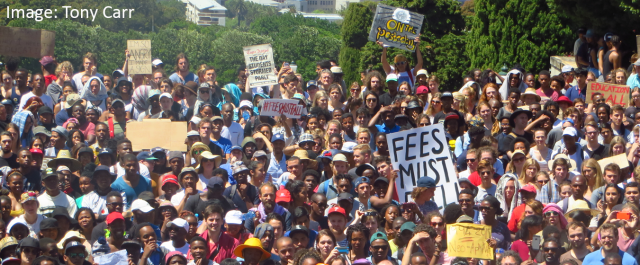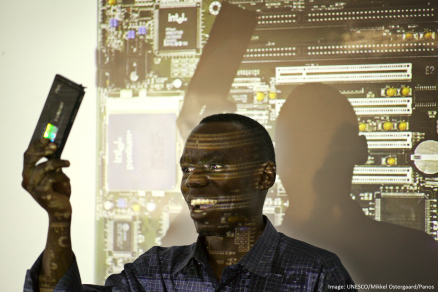
Students of the Midwifery School in El Fasher, North Darfur, march to commemorate the 16 Days of Activism against Gender Violence, organized by UNAMID Gender Unit.
School-related violence can be physical, psychological or sexual; occur on school grounds, in transit or in cyberspace; and include bullying, corporal punishment, verbal and emotional abuse, intimidation, sexual harassment and assault, gang activity and the presence of weapons among students. Among the many factors contributing to school-related violence towards children and adolescents, the gender dimension is one of the most significant. Gender-based violence negatively affects learning outcomes. This is Part I of two blogs being released to contribute to the 16-day campaign to end violence.
Schools do not exist in social isolation from their communities
Dominant conceptions may condone boys or men acting out expressions of aggression, violence, sexual power and homophobia. Conversely, expectations of girls and women can include deference to men and boys, submissiveness and passivity. As such, the way teachers behave may reflect the prejudices existing in wider societies. Teachers, both female and male, therefore, need training to understand and recognize their own attitudes, perceptions and expectations regarding gender, so that their interactions with pupils do not harm girls’ and boys’ learning experiences and achievement. In Turkey, for example, a one-term pre-service teacher education course on gender equity showed significant improvement in attitudes related to gender roles. Continue reading





 The inaugural Africa Talks Jobs (ATJ)
The inaugural Africa Talks Jobs (ATJ) 


